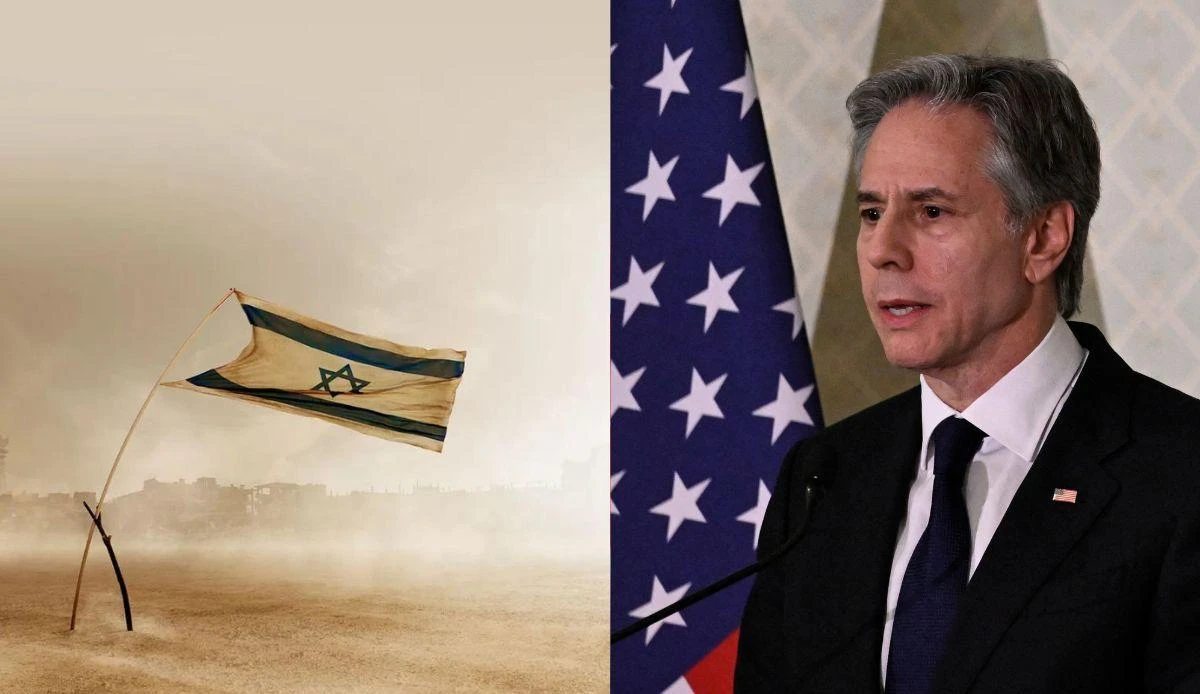Latest Economist cover depicts Israel’s isolation amidst Gaza conflict

The Economist’s cover depicts Israeli isolation, challenging traditional alliances and prompting critical examination.
In a bold statement on its latest cover, The Economist depicts Israel standing alone on the global stage as it grapples with mounting international criticism over its actions in the Gaza conflict against Hamas. With the headline “Israel Alone,” the British weekly newspaper portrays an Israeli flag planted firmly in the sand, set against a backdrop of war-ravaged buildings in Gaza.
The Economist’s cover serves as a poignant reflection of the shifting geopolitical landscape, where traditional alliances are strained, and longstanding narratives are challenged. In visual depiction of the Gaza crisis, The Economist explores the intricate web of relationships and interests that shape the region’s dynamics. However, amidst the stark imagery and dire warnings, questions arise: Is Israel truly alone in its struggle?
The cover prompts a critical examination of Israel’s relationships with key players in the international arena, the most prominent of those players being the United States, which has been a steadfast ally of Israel, providing diplomatic, military, and financial support. However, recent tensions between Israeli Prime Minister Benjamin Netanyahu and U.S. President Joe Biden have strained this relationship. Disagreements over the prosecution of the war and strategies for achieving peace have highlighted divergent priorities and approaches, raising questions about the depth of U.S. support for Israel’s actions.
Recent statements by U.S. Secretary of State Antony Blinken further highlight the complexities at play, showing that Israel is making its way to political solitude step by step and abandoning its’ long-time ally. Blinken’s caution against a major Israeli ground assault on Rafah underscores the diverging perspectives between the United States and Israel on how to address the conflict. This divergence reflects broader tensions within the U.S.-Israel relationship, with disagreements over military strategy and the pursuit of peace exacerbating existing rifts.
Additionally, the stance of other nations and regional powers further complicates the geopolitical landscape surrounding the conflict. Arab states, traditionally critical of Israel’s policies, have expressed solidarity with the Palestinian cause and called for an immediate ceasefire. Egypt, a key mediator in the negotiations, has underscored the need for a cessation of hostilities and warned against the repercussions of further Israeli military escalation.
The European Union, while advocating for a peaceful resolution to the conflict, has condemned Israel’s use of force and called for the protection of civilians in Gaza. These statements reflect growing international scrutiny of Israel’s actions and raise concerns about the long-term implications for its diplomatic relations and global standing.
However, achieving such a resolution is fraught with challenges. The Economist highlights the entrenched positions of key players, including Hamas and the Israeli government, whose divergent objectives and narratives complicate efforts to find common ground. Moreover, the broader geopolitical context, including regional rivalries and global power dynamics, adds layers of complexity to the conflict.
The Economist’s cover catalyzes broader conversations about the future of the Middle East and the international community’s role in shaping it. It prompts reflection on the moral, political, and strategic imperatives at stake, challenging stakeholders to reassess their priorities and strategies in pursuit of a just and lasting peace.
As the world watches with a mixture of concern and hope, the Economist’s cover serves as a poignant reminder of the urgent need for bold and decisive action. It calls upon leaders to rise above narrow interests and partisan divides and to work towards a future where the people of Israel and Gaza can live in peace and security.
Source: Newsroom



